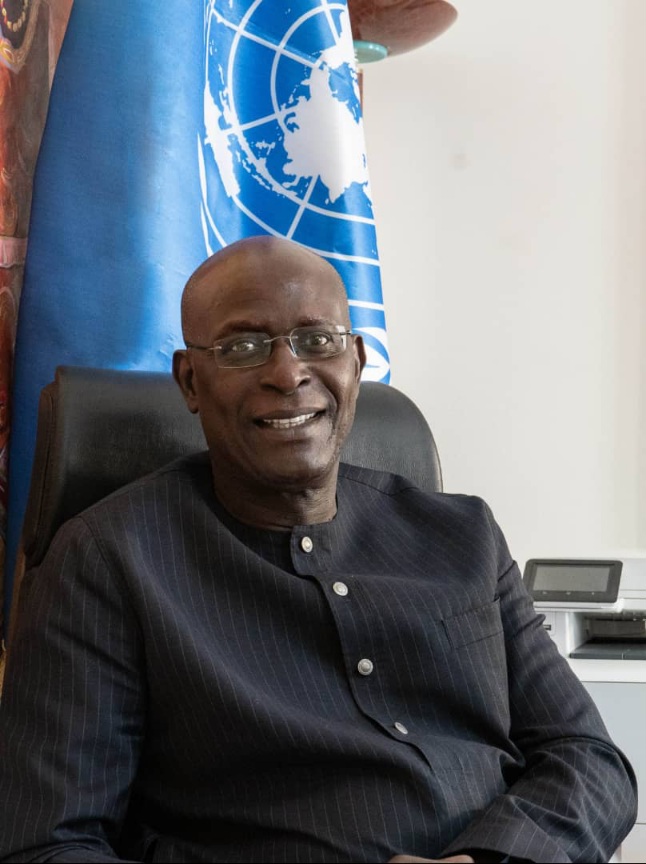… Identifies Challenges and Solutions for Humanitarian Interventions
In an exclusive interview, Mohamed Malick Fall, the United Nations Resident and Humanitarian Coordinator in Nigeria, highlights the urgent need for a unified response to the growing humanitarian crises in Nigeria. He also addresses the obstacles hindering effective intervention and shares insights into the efforts of the UN. The interview was conducted with the participation of UN OCHA Nigeria’s Head of Public Information, Ann Weru, and Public Information Officer, Dr. Chike Walter Duru.
Excerpts:
The Humanitarian Landscape in Nigeria
According to Fall, Nigeria faces a range of crises: from conflict and insecurity—particularly in the insurgency-affected North-East—to intercommunal violence, farmer-herder clashes, banditry, and kidnapping, all of which continue to disrupt lives across the country. In addition, Nigeria is grappling with climate-related challenges like droughts, floods, and heatwaves that exacerbate displacement and loss of livelihoods.
The UN’s Two-Pronged Response
Fall outlines the UN’s strategy:
- Humanitarian Response: Aimed at saving lives, reducing vulnerabilities, and restoring hope for a better future.
- Addressing Root Causes: Tackling underlying issues such as development deficits, lack of basic services, and limited employment opportunities. The UN is pursuing short, mid, and long-term development projects to mitigate these challenges.
Key Obstacles to Humanitarian Efforts
The biggest barrier is access, often restricted by insecurity, especially in the North-East. Despite efforts to combat insurgency, attacks—like recent ones in Konduga and Gwoza—are grim reminders of ongoing threats. Funding gaps are also a major concern. Fall reveals that Nigeria’s 2024 Humanitarian Response Plan is funded at less than 50%, while critical projects like the Lean Season Plan, designed to combat food insecurity and malnutrition, have received less than 30% of the needed resources.
The High Cost of Inaction
Fall stresses the dire consequences of neglecting humanitarian crises. “The survival of hundreds of thousands of severely malnourished children in Borno, Adamawa, and Yobe states depends on urgent interventions,” he notes, warning that inaction will lead to long-term developmental challenges for affected children.
Innovative Funding and the Need for Local Action
Fall advocates for innovative funding solutions that go beyond traditional Western donors. With Nigeria being one of Africa’s largest economies, Fall calls on the Nigerian government to increase its financial commitment to humanitarian efforts.
The Role of International Laws and Dialogue
In conflict zones, Fall observes, violence often prevails because parties refuse dialogue and peaceful resolutions. He points to wars in Ukraine, Sudan, and Gaza as examples where humanitarian law is disregarded, urging global leaders to respect international humanitarian principles.
Support for Displaced and Vulnerable Populations
The UN prioritizes the protection of the most vulnerable, including women, children, the elderly, and people living with disabilities. According to Fall, the humanitarian sector exemplifies “humanity in action,” with actors risking their lives daily to save others, while host communities share scarce resources with displaced persons.
A Call to Action for Stakeholders
Fall concludes with a call for stakeholders to embrace the principle of humanity. Addressing poverty, inequality, and the climate crisis is essential, as these issues fuel human suffering. “It is not just the responsibility of humanitarian organizations,” Fall emphasizes. “We need a collective commitment from society as a whole to make a real difference.”






